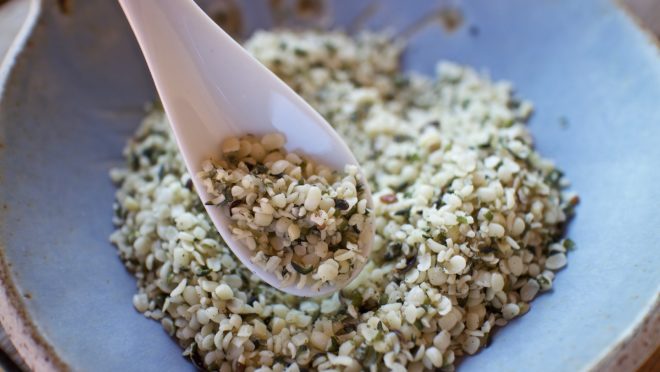Natural products are a broad market that ranges from food to skin care products. These natural products are obtained from natural sources such as plants, animals and minerals. In this way, natural products are minimally processed, without the addition of artificial chemicals or synthetic additives. They are valued because they are considered healthier and more sustainable, offering nutritional and well-being benefits.
Examples of natural products include organic foods, cosmetics made with natural ingredients, herbal supplements, essential oils, among others.
The public that usually seeks out these foods is looking for a healthier lifestyle with a higher quality of life and in a sustainable way that brings benefits to both the body and the planet. Furthermore, people with food allergies tend to look for natural foods that are free from cross-contamination.
In food, in general, natural products are those that do not contain pesticides and are free from the use of chemical fertilizers and synthetic substances. These are foods that guarantee greater quality when ingested, with a sharper flavor, healthier and that reflect healthiness.
Another point about natural products is the sales and storage format. Bulk is the most common format, that is, without packaging and in different quantities, depending on the customer’s needs. Storage is crucial to maintaining the quality of the natural product — the company supplying the product needs to keep the food free from contamination, in spaces that guarantee its freshness and with professionals experienced in handling these items.
How to store natural products?
When it comes to healthy eating, natural products such as teas and oilseeds are essential. However, as they do not contain preservatives, it is crucial to take precautions to ensure their durability and quality. Improper storage and incorrect handling can compromise these products.
According to Jayme Augusto Menegassi, food engineer at Tainá Alimentos, it is essential to take specific care to preserve natural products after purchase. Original packaging can guarantee shelf life of up to one year, but once opened, this shelf life is reduced. Therefore, it is essential to store them correctly. Check out a list below with some guidelines on how to store your natural products:
Herbs and Spices
- Store in airtight containers, preferably opaque, to protect from air, light and moisture.
- Keep in a cool and dry place.
- Avoid storing near heat sources, such as the stove.
Candied Fruits
- Store in glass or stainless steel jars, away from light and moisture.
- Make sure the storage location is clean and dry.
- Use airtight containers and keep at low temperatures for better conservation.
Powders and Flours
- Store in closed containers, away from moisture.
- For high-fat flours, such as almonds and coconut, store in the refrigerator to prevent oxidation and odor changes.
Grains
- After opening the packages, keep the beans closed in a cool, dry place.
- Prevent the appearance of pests by keeping them well stored.
Chips
- Proper sealing is essential for chip storage.
- Keep in the original packaging or transfer to a tightly closed container, avoiding contact with air.
Find out more What is the correct way to store natural products? Learn how to keep food fresh
Why are natural products better than industrialized ones?
There are several reasons why natural products are better than industrialized ones. It is worth noting that not all industrialized products are harmful, however, natural products are considered a healthier choice for some reasons. Check out some below:
- Nutrition and Health: Rich in essential nutrients such as vitamins, minerals and antioxidants, natural products do not undergo refinement processes that can eliminate or reduce these ingredients. Furthermore, they tend to have less added artificial ingredients such as colorings, flavorings and preservatives.
- Flavor and Aroma: Natural products tend to offer more authentic flavors and aromas, by preserving the natural characteristics of the ingredients.
- Environmental Sustainability: It is common in this market for companies that work with more sustainable agricultural practices, such as organic agriculture being better for environmental preservation.
Furthermore, many natural products tend to be of plant origin, which attracts many consumers concerned about animal welfare and the ethics of food production. Another interesting fact related to adhering to these products in your routine is that they enable greater awareness regarding your diet, promoting a more balanced lifestyle.
The natural products market
According to a recent survey by Sebrae (Brazilian Micro and Small Business Support Service), the natural products sector showed growth of 98% in the last two years, an increase accelerated by the Covid-19 pandemic. The growth was also revealed by a survey by the Federation of Industries of the State of São Paulo (Fiesp) and the Brazilian Institute of Public Opinion and Statistics (Ibope) which showed that Brazilians have been eating healthier.
According to the survey, the demand for more nutritious products grew by 32%, and 29% of those interviewed said they preferred quality foods over processed foods. Another important piece of data, this time highlighted by Euromonitor International, points out that the sale of natural products grew by around 12.3% in the year.
Natural products market trends
Check out some of the investment possibilities in this broad market for natural products below:
- Organic foods: public looking for options free of pesticides and chemical fertilizers.
- Veganism and vegetarians: public drives demand for products free of ingredients of animal origin.
- Functional drinks: kombucha, cold-pressed juices, herbal teas, is an expanding market for a public looking for healthier alternatives to sugary and artificial drinks.
- Personal and natural care products: aimed at consumers who are increasingly aware of natural options such as cosmetics, skin care and hair care.
- Natural food supplements: Focused on health and well-being, this market works with vitamins, minerals, probiotics and herbs.
- Allergen-free foods: The demand for natural and allergen-free foods, such as gluten-free, lactose-free and soy-free, is on the rise due to increased public awareness of dietary restrictions and intolerances.
As awareness about health, sustainability and well-being continues to grow, new opportunities and demands in this sector are likely to emerge. One company that took advantage of this scenario was the Curitiba industry Tainá Alimentos, which became one of the main distributors of natural products in the country, with numerous customers.
The company invests heavily in technology in the production of this type of food and already has 350 items in its portfolio of natural products, with dried fruits, grains, flours, oilseeds, teas, seasonings and cereals, always keeping an eye on what is best on the market. . All Tainá Alimentos products are free from gluten and cow’s milk protein.
Tainá Alimentos offers products in closed boxes and bags from 10kg to 30kg and in fractions from 1kg to 200g. All this to avoid waste and serve both those who have a greater demand for stock and those who have a lower demand.
Upon arrival of the raw material, Tainá Alimentos carries out sensory analyzes and laboratory tests to approve the content and only after passing all the tests, the products go to the warehouse where they will be fractionated and sold. All batches received are evaluated and a sample is taken for product retention and monitoring.
With more than 11 years in the market, Tainá Alimentos has become a reference in the bulk market, providing security and credibility for partners through high quality products and the best raw materials. To find out more about Tainá Alimentos natural products and its entire quality network, visit the website.
How much does it cost to set up a natural products store?
If you want to invest in this sustainable market, which provides more conscious and healthy consumption for the population, pay attention to the values.
The cost of setting up a natural products store can vary significantly depending on factors such as the size of the store, location, suppliers, physical structure, initial stock and marketing costs. Check out below some factors for you to put into your account to consider the initial costs of a natural products store:
- Location: The cost of renting or purchasing a commercial property may vary depending on the region and the desired space. Set a budget for your natural products store in relation to rent/purchase and carry out your searches. It is worth remembering that the location must be strategic to increase your return on investment.
- Renovations and decoration: Depending on the space chosen, it will be necessary to carry out small renovations. If applicable, put this amount in your account to choose more safely.
- Initial inventory: To start your store you need to have a stock of products. The cost of inventory will depend on the variety of products you want to offer, as well as the quality of each of them. Tainá Alimentos is an excellent supplier with a vast portfolio of natural products. It is worth checking.
- Equipment and utensils: Shelves, counters, point of sale (POS) systems, refrigerators and other materials are necessary to make up your store. Don’t forget to research the values.
- Marketing and advertising: An essential part of your store will be communication to attract new customers and create a profitable brand. Set aside a fee for the design of your logo, promotional materials and website.
- Licenses and documentation: There are some costs related to business and health licenses. It is important to have your store’s legal documents up to date. For that reason, this is an essential expense to put on your list.
- Employees: If you plan to start your store with employees, plan salaries, benefits and training.
Content Glossary
Throughout the text, some terms appeared, but may have left some doubts about their meaning. See some explanations below:
Antioxidants:
Antioxidants are present in several natural products. It is a substance capable of protecting cells against free radicals.
Free radicals are unstable molecules that can be produced by the body but are also generated by factors such as pollution, sun, smoke, stress and cigarette smoking. Free radicals can cause damage to cells and lead to premature aging and chronic diseases.
Antioxidants can neutralize free radicals, making them essential for your diet. They are present in foods such as vitamins C and E, minerals (selenium, zinc), phenolic compounds (flavoids, tannins) and carotenoids.
Refinement:
The food refinement process is a series of food industry procedures that alter the physical, chemical and sensory characteristics of food.
Refinement is done with the aim of improving the quality, durability, appearance, flavor and texture of products. And of course, increase its useful life.
Refinement can improve certain characteristics of food, but some processes can lead to a loss of nutrients and components that are beneficial to health. Therefore, it is recommended to balance the consumption of refined foods with natural and minimally processed foods, to ensure a healthy and nutritious diet.
Find out more Everything you need to know about gluten-free eating and didn’t have anyone to ask

Sign up for our newsletter and stay up to date with exclusive news
that can transform your routine!
Warning: Undefined array key "title" in /home/storelat/public_html/wp-content/plugins/link-whisper-premium/templates/frontend/related-posts.php on line 12
Warning: Undefined array key "title_tag" in /home/storelat/public_html/wp-content/plugins/link-whisper-premium/templates/frontend/related-posts.php on line 13




